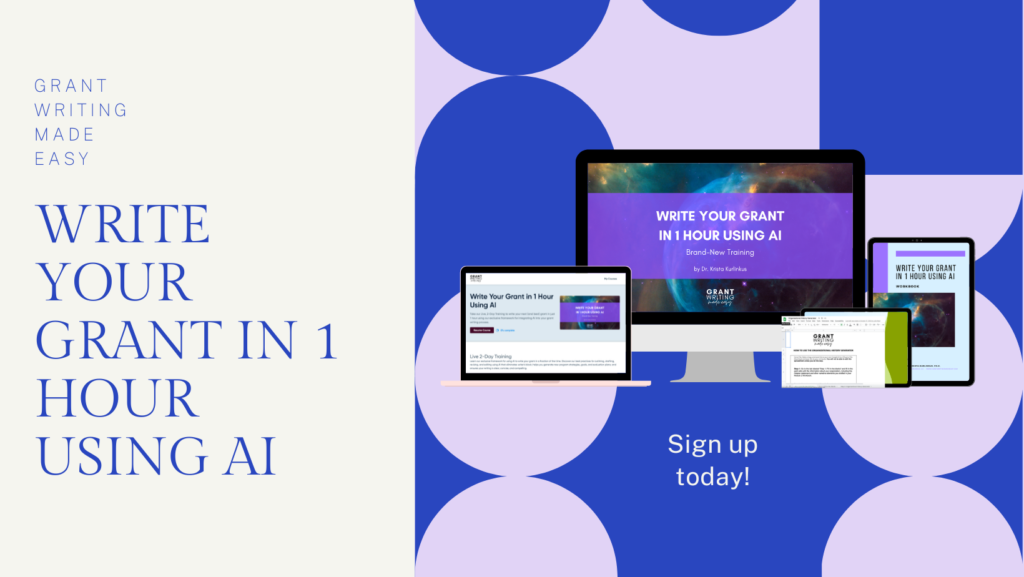The world of grant writing has evolved with the integration of artificial intelligence (AI) in recent years. AI-based language models such as ChatGPT have been assisting grant writers with their tasks, making the process more efficient and effective. However, ChatGPT alone has certain limitations when it comes to incorporating real, relevant, and timely research. Today, we will explore an exciting new advancement that addresses these limitations: the WebChatGPT browser extension. This tool enables you to incorporate credible, relevant research into your grant writing, significantly improving the quality of your problem statements and the overall grant proposal.
Why ChatGPT Alone Isn’t Sufficient for Incorporating Real Research
ChatGPT, as powerful as it is, has certain limitations when it comes to incorporating real, relevant, and timely research. These limitations include:
1. Knowledge cutoff: ChatGPT’s knowledge only extends up to a specific date (September 2021 for the current version), meaning it cannot provide the most up-to-date information on a topic.
2. Limited fact-checking: ChatGPT is not designed to verify the accuracy of the information it generates, potentially leading to inaccuracies or inconsistencies in the responses.
3. Lack of web access: By default, ChatGPT cannot access the internet to search for specific information or recent developments, limiting its ability to provide real-time data.
4. Incomplete context: When using ChatGPT alone, the model may not have a complete understanding of the context of your question, which could result in less relevant or accurate responses.
Integrating Research with WebChatGPT
WebChatGPT is a browser extension designed to enhance the capabilities of ChatGPT by giving it access to the internet, enabling it to search for and incorporate up-to-date, relevant research into your conversations [4]. This is particularly useful when working on a statement of need for a grant proposal, as it allows the AI to provide accurate, current, and well-researched information, complete with in-text citations.
To effectively incorporate research into your statement of need, you can start by asking WebChatGPT your research question. WebChatGPT will then access the internet to find the most relevant and recent information to address your query, significantly improving the quality of your grant proposal [5].
The results generated by WebChatGPT can be formatted in a variety of ways, depending on your preferences and requirements. When WebChatGPT provides information from web sources, it includes in-text citations to give proper credit to the original source [4]. You can choose to integrate the information into your statement of need using a combination of summarizing, paraphrasing, and quoting, depending on the context and the nature of the information [7]. This ensures that the research you incorporate is both accurate and properly attributed.
In summary, WebChatGPT is a powerful tool that enhances ChatGPT’s capabilities by giving it access to up-to-date and relevant information on the internet. This allows you to effectively incorporate research into your statement of need for a grant proposal, ensuring that your proposal is well-informed, accurate, and persuasive. The results generated by WebChatGPT can be formatted in various ways, with proper in-text citations to maintain credibility and acknowledge the original sources.
Here’s how to make the most of WebChatGPT:
1. Start by asking ChatGPT your research question. Avoid mentioning grants or problem statements at this stage. Instead, focus on the core question you want to address. For example:
– What are the three main causes of X?
– How does X contribute to Y?
2. Use the following prompt template for generating a well-researched argument for your problem statement in a grant proposal:
“Please identify the demographics of [your population], list specific [needs], and explain [the availability and affordability of those services]. Add a detailed explanation of why they need [the specific thing you’re providing with your program] and whether [there are any free government programs in the U.S. that provide that service for your demographic.]”
Example prompt:
“Please identify the demographics of [adults with Down syndrome in the U.S.], list specific [social support services they require to thrive], and explain [the availability and affordability of those services where you are]. Add a detailed explanation of why they need [to be taught independent living skills] and whether [there are any free government programs in the U.S. that provide that training for adults.]”
Refining Your Problem Statement with AI-generated Information
By using WebChatGPT in conjunction with ChatGPT, you can generate a compelling problem statement or statement of need that supports your grant proposal with credible, relevant research. As you receive new information from ChatGPT or other AI tools, you can refine your answers to improve the overall quality of your grant proposal, asking it follow-up questions explaining specific concepts and their relevance to your argument, asking it to elaborate on smaller points that you think should play a larger role in your argument, or even asking it to incorporate more demographic or other types of data in its explanation. This ongoing refinement process helps to ensure that your proposal stands out and clearly demonstrates the need for your program or nonprofit.
Conclusion
The WebChatGPT browser extension brings a new level of sophistication to AI-assisted grant writing. By addressing the limitations of ChatGPT and integrating real research into your work, you can develop a stronger, more persuasive grant proposal that highlights the need for your program or nonprofit.
Now is the time to embrace the power of AI and WebChatGPT to enhance your grant writing and increase your chances of success. Not only will this innovative tool help you create more compelling problem statements and statements of need, but it will also allow you to stay up-to-date with the latest research and developments in your field. Ultimately, the combination of AI technology and real-time research will give you a competitive edge in the ever-evolving world of grant writing.

If you’re ready to learn more, including the fastest, most effective prompts for generating compelling grant proposals, join Write Your Grant in 1 Hour Using AI. In addition to the recorded materials, workbook, and prompt cheat sheet, we are going to do another live session in May teaching our new research writing strategies.






